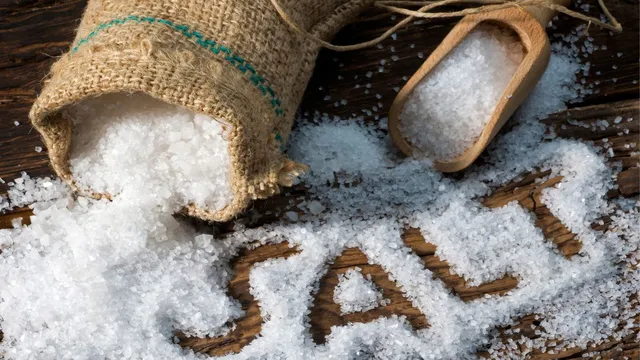- By Iram Hussain
- Mon, 18 Aug 2025 05:13 PM (IST)
- Source:JND
Salt or sodium chloride is an essential mineral that helps maintain fluid balance, nerve function, and muscle contractions. It enhances flavour and preserves food. However, consuming too much salt can put a heavy burden on your kidneys and increase the risk of long-term health issues. In a conversation with The Daily Jagran, Dr. Mohit Khirbat, Consultant, Nephrology, CK Birla Hospital, Gurugram explained how excessive salt intake can contribute to kidney problems.
What Happens To Your Kidneys When You Eat Too Much Salt?
Increases Blood Pressure
Excessive salt consumption leads to increased water retention in the body, causing blood pressure to rise. High blood pressure is a significant risk factor for CKD because it injures the small blood vessels within the kidneys over time.
Leads To Fluid Retention
When you have too much salt, your body retains water to dilute the sodium in your blood. The extra water adds to the kidneys' workload and can lead to swollen ankles, feet and hands.
ALSO READ: Is Your Workplace Slowly Harming Your Kidneys Without You Knowing It? Doctor Shares Insights
Speeds Up Kidney Damage In Vulnerable People
Individuals with diseases such as diabetes or high blood pressure are more susceptible to salt-induced kidney injury. Excessive sodium aggravates protein loss in the urine, an indication that the kidneys are not functioning properly.
Encourages Kidney Stone Development
A diet high in salt raises urinary calcium levels which may bind with oxalate to form stones. Cutting down on sodium intake helps prevent stone formation.
Interferes With The Filtering Function Of The Kidneys
The kidneys control sodium balance within the body. After a long time, consuming high salt can decrease their ability to effectively eliminate excess sodium, creating a cycle of fluid retention and high blood pressure.
Leads To Proteinuria
Excessive salt will lead to protein leaking into the urine, a condition called proteinuria which is usually an initial sign of kidney damage and a key warning signal for disease progression in the kidneys.
ALSO READ: How PCOD, High BP And Obesity Are Making Women More Prone To Kidney Damage? Doctor Explains
Aggravates CKD Symptoms
In individuals who already have kidney disease, excess sodium can aggravate symptoms such as swelling, fatigue and breathlessness, making disease control harder.
Salt is a minor ingredient but has a significant impact on kidney function. Reducing the intake of processed foods, not adding extra salt at the table, and opting for fresh, home-cooked food can serve as a protective measure for your kidneys and overall health.

